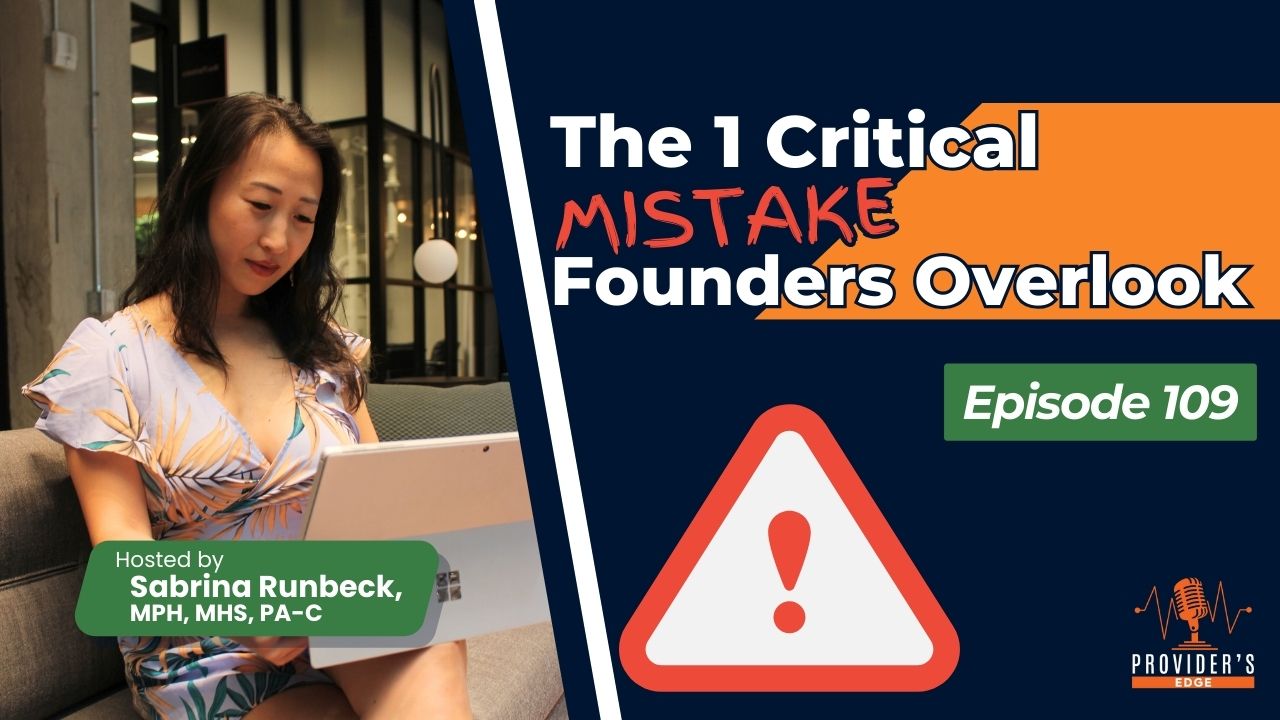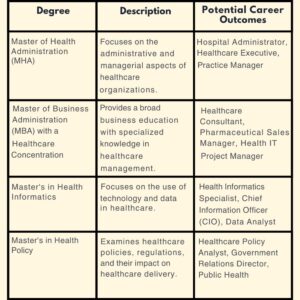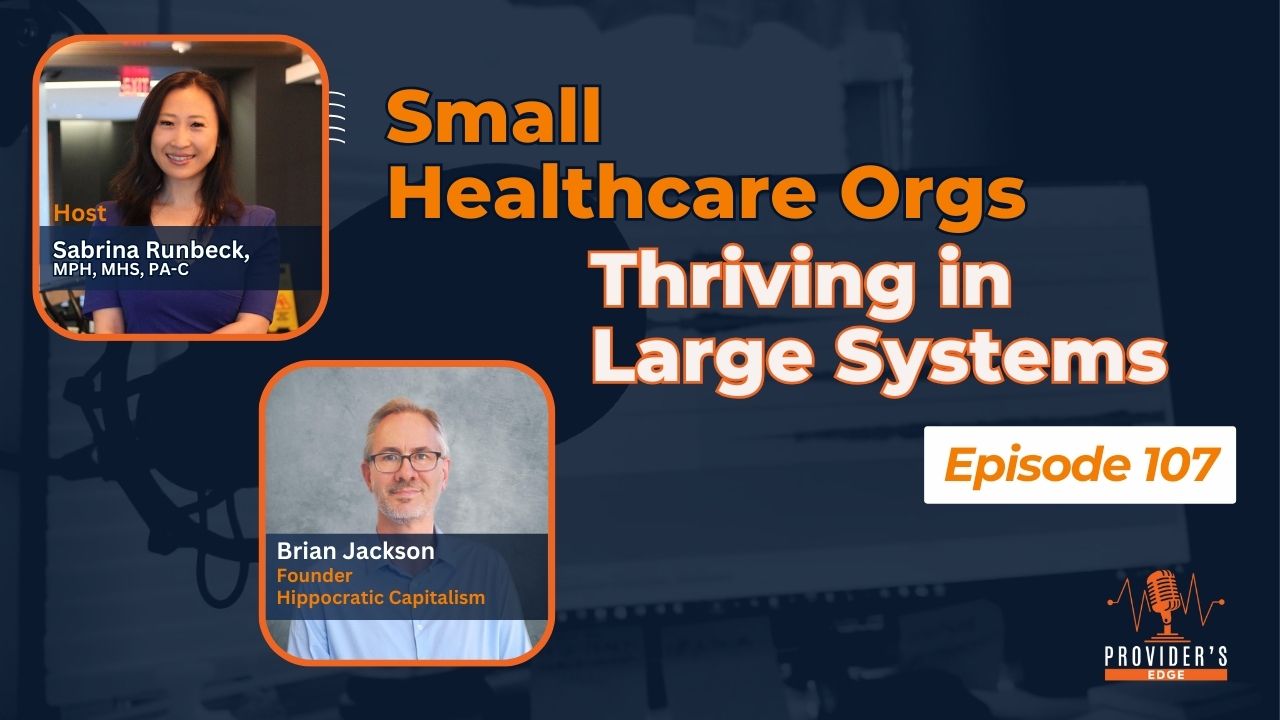
Healthcare Business Development
The Critical Mistake Founders Overlook
In the healthcare technology sector, new solutions crop up daily. Apps promise streamlined processes. Software pledges improved patient care. Yet, even with groundbreaking products, many founders hit a wall. Why? They are missing the mark. A crucial oversight on healthcare business development.
This isn't your average market. Healthcare's unique blend of regulations and stakeholder dynamics demands a specialized playbook. Cookie-cutter business strategies? They fall flat here.
Let's dive into the core challenges facing healthcare tech founders today:
Listen anywhere you get your podcastin' on.
Live Interview

The Revenue Rollercoaster Trap
Many healthcare tech founders experience a common scenario: You've hit $2 million in revenue or secured $5 million in funding. Champagne time, right? Not so fast. This rapid ascent often reveals a glaring weakness: a shaky internal foundation.
Building a rock-solid business development team is non-negotiable to achieve sustainable growth. You need healthcare veterans who understand the nuances of revenue cycles, billing intricacies, and practice management. On top of that they should be able to understand marketing messages to uniquely brand your products and services. They also must be able to work together effectively to keep up with the fast-changing market ends. These professionals are the driving force behind your business growth. These aren't just nice-to-haves – they're your growth engines.
The Role of a Business Development Manager in Healthcare
A competent business development manager in healthcare is a must-have for navigating the day-to-day function of your business and helps to guide where you are heading. This role requires a unique blend of skills:
- Industry Knowledge: A thorough understanding of the healthcare industry, including current trends and regulations.
- Strategic Thinking: Ability to implement strategic initiatives that align with the company's goals.
- Relationship Building: Skill in fostering strategic partnerships crucial for expansion.
- Revenue Cycle Expertise: Proficiency in managing the intricate healthcare revenue cycle.
The impact of a skilled business development manager extends beyond just driving sales. They play a pivotal role in guiding the company's strategic direction and ensuring long-term success.
Culture Crumbles in the Growth Sprint: The Overlooked Element
As you scale, new faces flood in. Exciting, yes. But beware – your company culture can evaporate if you're not vigilant. Many leaders fixate on skills, overlooking cultural alignment. It's like forcing mismatched puzzle pieces together – you end up with a mess, not a masterpiece.
At PulsePoint Path, we deploy four critical staffing assessments. Why? Because we know amazing people create impact stories – you can't train that from scratch. The goal is to build internal teams that not only possess the necessary functional skills, but also embody the right communication, interpersonal, and collaboration abilities. Look beyond the resume. Seek out those rare gems who bring both stellar skills and seamless cultural fit.
Leadership: The Backbone of Successful Healthcare Businesses
Founders often get tunnel vision, laser-focused on external wins like fundraising and deal-closing. Crucial? Absolutely. But neglecting internal leadership is a ticking time bomb.
While outward-facing tasks like fundraising and closing deals are crucial, strong internal leadership is equally vital for streamlined operations and a thriving company culture.
Strong delegation and empowered team leaders aren't luxuries – they're necessities for smooth scaling. Investing in existing personnel through professional development programs and leadership coaching is essential. Build a structure where every voice matters, where innovation thrives. Consider bringing on a talent optimization director alongside your business development manager. This approach ensures a balance between driving business growth and nurturing internal talent. This ecosystem ensures your top talent doesn't just survive – it flourishes.
Key Strategies for Healthcare Business Development
- Leverage Data and Analytics:
- Use data-driven insights to inform strategic decisions and identify market opportunities.
- Focus on Digital Marketing:
- Just about everyone is online today, even if you don't believe so. A strong online presence is a must for your healthcare businesses. Implement engaging digital marketing strategies to reach and engage your target audience.
- Optimize Revenue Cycle Services:
- Efficient revenue cycle management is critical in healthcare. Implement measurable and achievable systems and processes to ensure smooth billing and collection.
- Develop Strategic Partnerships:
- Create alliances with other healthcare organizations, technology providers, or research institutions to expand your reach and capabilities.
- Prioritize Compliance:
- Stay abreast of healthcare regulations and ensure your business practices align with industry standards.
- Invest in Continuous Learning:
Encourage team members to pursue relevant certifications or advanced degrees, such as a bachelor's degree in healthcare management or an MBA with a healthcare focus.
Telling Your Stories Impactfully For Healthcare Business Development
Impactful storytelling is a powerful tool for business development. These narratives showcase how your solutions have improved patient outcomes, streamlined operations, or reduced costs for healthcare providers. They serve as compelling evidence of your value proposition and can be instrumental in driving business growth.
Funding Programs and Healthcare Business Development
Understanding and leveraging various funding programs is crucial for healthcare tech companies. Whether it's government grants, venture capital, or strategic partnerships, a diverse funding strategy can provide the necessary resources for scaling your business. A VP of business development in healthcare should be well-versed in identifying and pursuing these opportunities.
The Role of MSO Services in Healthcare Business Growth
Management Services Organizations (MSOs) can play a significant role in healthcare business development. By outsourcing administrative and management functions to MSOs, healthcare tech companies can focus on their core competencies while ensuring efficient operations.
Building a Strong Team: Beyond the Business Development Manager
While a business development manager is crucial, building a well-rounded team is essential for success in the healthcare industry. Consider roles such as:
- Healthcare Business Development Executive: To oversee high-level strategy and partnerships.
- Digital Marketing Specialist: To manage online presence and lead generation.
- Revenue Cycle Expert: To optimize financial processes and ensure healthy cash flow.
- Compliance Officer: To navigate the complex regulatory landscape of healthcare.
Each team member should bring a unique skill set and contribute to the company's overall strategic direction.
Key Takeaways for Healthcare Tech Trailblazers:
- Solid Foundation First: Build a robust internal structure before chasing aggressive growth.
- Culture is King: Nurture your company culture intentionally as you scale.
- Leadership Matters: Invest in strong internal leadership to drive sustainable success.
Ready to leap ahead of the pack in healthcare tech? It's time to rethink your approach to business development. Focus on building a powerhouse internal team, fostering a vibrant culture, and cultivating strong leadership. That's how you'll not just survive, but thrive in this dynamic landscape.
Don't let hidden growth hurdles derail your healthcare tech vision. Take action now. Evaluate your internal structures, reassess your hiring practices, and prioritize leadership development. Your future success depends on it.
FAQs about healthcare business development
What does business development do in healthcare?
In healthcare, business development isn’t just about driving revenue; it's about strategically positioning your company within a complex ecosystem. It involves forging partnerships, optimizing operations, and identifying opportunities to create value for both your company and the patients you serve. To stay ahead of the curve, healthcare businesses need to leverage data and analytics to gain insights into market trends, patient needs, and competitive forces.
What is the most profitable healthcare business?
There is no one-size-fits-all answer here. The most profitable type of healthcare business depends on various factors, including market demand, local regulations, and your unique value proposition. Without a solid research and market analysis, you cannot make a proper perdiction in identifying niches ripe for growth.
Consider these profitable areas within healthcare:
- Pharmaceutical Development: Researching, developing, and bringing new drugs and therapies to market.
- Medical Device Manufacturing: Designing, producing, and distributing medical equipment and devices.
- Health IT Solutions: Providing software and technology solutions to healthcare providers, insurers, and patients.
- Telemedicine Platforms: Offering remote healthcare services through video conferencing and digital communication tools.
What does a healthcare business do?
Healthcare businesses encompass a broad range of services and products that address various needs within the industry. From pharmaceutical development and medical device manufacturing to health IT solutions and telemedicine platforms, each plays a unique role in delivering healthcare services.
Healthcare businesses are crucial in ensuring patients receive quality care, managing health information effectively, and advancing medical technology. Their activities contribute to a more efficient and responsive healthcare system. They strive to improve patient outcomes, enhance access to care, and address emerging health challenges. Whether it's developing life-saving medications, providing cutting-edge medical devices, or streamlining administrative processes, healthcare businesses play a vital role in shaping the future of healthcare.
What is the best degree for healthcare business?
Aspiring healthcare business professionals have several options. A Master of Health Administration (MHA), a Master of Business Administration (MBA) with a healthcare concentration, or a specialized master's degree in health informatics or health policy are excellent pathways to leadership roles within healthcare organizations. Remember, academic qualifications are often just one part of the equation; practical experience and strong networking skills are essential for success in this competitive arena.
Here's a table summarizing the different degree paths and potential career outcomes:

Conclusion: The Path Forward in Healthcare Business Development
Success in healthcare tech requires more than just an innovative product. It demands a comprehensive approach to business development that addresses internal structure, company culture, and leadership.
By focusing on building a strong foundation, nurturing a positive culture, and developing strong leadership, healthcare tech companies can position you for sustainable growth and make a lasting impact in the industry.
Remember, in the fast-paced world of healthcare technology, those who invest in solid business development strategies today will be the industry leaders of tomorrow.
Recommended Podcast Episodes
"True confidence is recognizing that I'm not great at everything and I need help." – Kelly Resendez
Are you tired of your healthcare organization feeling lost in a sea of industrial scaling solutions?
Be a guest on our show
The Provider's Edge show is always looking to feature healthcare change-makers and celebrate the work they are doing to improve healthcare.
Together, we can encourage other healthcare entrepreneurs and startup founders to up-level their businesses.
If you or someone you know could be a good fit as a guest on the show, please click on the bottom below to apply as a speaker.
Healthcare Entrepreneurs!
I can help you gain visibility and credibility in the right circles so you can accelerate your mission and profitability!
After overcoming burnout working in surgery, I went back to my roots in neuroscience and public health. I learned the importance of building key human relationships with my team throughout our organization.
While helping healthcare executives and entrepreneurs to get out of the day-to-day operation of their practice, I realized I needed more visibility and more connections to reach my ideal clients.
Once I set out to be highly visible in the right circles, I was able to leverage my network of strategic partners to convert clients 5x higher than any other marketing channel I had tried previously.
Now I help healthcare change-makers to accelerate their impact and increase profitability by gaining visibility and credibility with the right strategic partners.
My clients no longer worry about where their next client is coming from, the need to plan additional budget for ads spending, or losing the ability to connect with others because their social media account is shut down.
If you want to share your social mission with the world and gain pivotal supporters that become loyal clients... then you are in the right place, with the right consultant who is also a recovered clinician.




